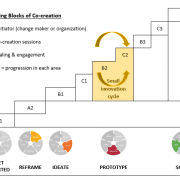Human Performance Warning Flag 1 – Peer Checking Everything

Hi there! Gain access to this article with a StrategyDriven Insights Library – Total Access subscription or buy access to the article itself.
| Subscribe to the StrategyDriven Insights Library
Sign-up now for your StrategyDriven Insights Library – Total Access subscription for as low as $15 / month (paid annually). Not sure? Click here to learn more. |
Buy the Article
Don’t need a subscription? Buy access to Human Performance Warning Flag 1 – Peer Checking Everything for just $2! |












Leave a Reply
Want to join the discussion?Feel free to contribute!